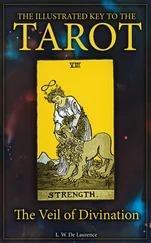W.E.B. Du Bois
Darkwater: Voices from Within the Veil
(Unabridged)
Autobiography of W. E. B. Du Bois; Including Essays, Spiritual Writings and Poems
Published by
 Books
Books
Advanced Digital Solutions & High-Quality eBook Formatting
musaicumbooks@okpublishing.info2018 OK Publishing ISBN 978-80-272-4054-8
Postscript Postscript Table of Contents These are the things of which men think, who live: of their own selves and the dwelling place of their fathers; of their neighbors; of work and service; of rule and reason and women and children; of Beauty and Death and War. To this thinking I have only to add a point of view: I have been in the world, but not of it. I have seen the human drama from a veiled corner, where all the outer tragedy and comedy have reproduced themselves in microcosm within. From this inner torment of souls the human scene without has interpreted itself to me in unusual and even illuminating ways. For this reason, and this alone, I venture to write again on themes on which great souls have already said greater words, in the hope that I may strike here and there a half-tone, newer even if slighter, up from the heart of my problem and the problems of my people. Between the sterner flights of logic, I have sought to set some little alightings of what may be poetry. They are tributes to Beauty, unworthy to stand alone; yet perversely, in my mind, now at the end, I know not whether I mean the Thought for the Fancy—or the Fancy for the Thought, or why the book trails off to playing, rather than standing strong on unanswering fact. But this is alway—is it not?—the Riddle of Life. Many of my words appear here transformed from other publications and I thank the Atlantic , the Independent , the Crisis , and the Journal of Race Development for letting me use them again. W.E. BURGHARDT DU BOIS. New York, 1919.
Credo
I The Shadow of Years
II The Souls of White Folk
III The Hands of Ethiopia
IV Of Work And Wealth
V "The Servant in the House"
VI Of the Ruling of Men
VII The Damnation of Women
VIII The Immortal Child
IX Of Beauty and Death
X The Comet
Table of Contents
These are the things of which men think, who live: of their own selves and the dwelling place of their fathers; of their neighbors; of work and service; of rule and reason and women and children; of Beauty and Death and War. To this thinking I have only to add a point of view: I have been in the world, but not of it. I have seen the human drama from a veiled corner, where all the outer tragedy and comedy have reproduced themselves in microcosm within. From this inner torment of souls the human scene without has interpreted itself to me in unusual and even illuminating ways. For this reason, and this alone, I venture to write again on themes on which great souls have already said greater words, in the hope that I may strike here and there a half-tone, newer even if slighter, up from the heart of my problem and the problems of my people.
Between the sterner flights of logic, I have sought to set some little alightings of what may be poetry. They are tributes to Beauty, unworthy to stand alone; yet perversely, in my mind, now at the end, I know not whether I mean the Thought for the Fancy—or the Fancy for the Thought, or why the book trails off to playing, rather than standing strong on unanswering fact. But this is alway—is it not?—the Riddle of Life.
Many of my words appear here transformed from other publications and I thank the Atlantic , the Independent , the Crisis , and the Journal of Race Development for letting me use them again.
W.E. BURGHARDT DU BOIS.
New York, 1919.
Table of Contents
I believe in God, who made of one blood all nations that on earth do dwell. I believe that all men, black and brown and white, are brothers, varying through time and opportunity, in form and gift and feature, but differing in no essential particular, and alike in soul and the possibility of infinite development.
Especially do I believe in the Negro Race: in the beauty of its genius, the sweetness of its soul, and its strength in that meekness which shall yet inherit this turbulent earth.
I believe in Pride of race and lineage and self: in pride of self so deep as to scorn injustice to other selves; in pride of lineage so great as to despise no man's father; in pride of race so chivalrous as neither to offer bastardy to the weak nor beg wedlock of the strong, knowing that men may be brothers in Christ, even though they be not brothers-in-law.
I believe in Service—humble, reverent service, from the blackening of boots to the whitening of souls; for Work is Heaven, Idleness Hell, and Wage is the "Well done!" of the Master, who summoned all them that labor and are heavy laden, making no distinction between the black, sweating cotton hands of Georgia and the first families of Virginia, since all distinction not based on deed is devilish and not divine.
I believe in the Devil and his angels, who wantonly work to narrow the opportunity of struggling human beings, especially if they be black; who spit in the faces of the fallen, strike them that cannot strike again, believe the worst and work to prove it, hating the image which their Maker stamped on a brother's soul.
I believe in the Prince of Peace. I believe that War is Murder. I believe that armies and navies are at bottom the tinsel and braggadocio of oppression and wrong, and I believe that the wicked conquest of weaker and darker nations by nations whiter and stronger but foreshadows the death of that strength.
I believe in Liberty for all men: the space to stretch their arms and their souls, the right to breathe and the right to vote, the freedom to choose their friends, enjoy the sunshine, and ride on the railroads, uncursed by color; thinking, dreaming, working as they will in a kingdom of beauty and love.
I believe in the Training of Children, black even as white; the leading out of little souls into the green pastures and beside the still waters, not for pelf or peace, but for life lit by some large vision of beauty and goodness and truth; lest we forget, and the sons of the fathers, like Esau, for mere meat barter their birthright in a mighty nation.
Finally, I believe in Patience—patience with the weakness of the Weak and the strength of the Strong, the prejudice of the Ignorant and the ignorance of the Blind; patience with the tardy triumph of Joy and the mad chastening of Sorrow; patience with God!
Table of Contents
I was born by a golden river and in the shadow of two great hills, five years after the Emancipation Proclamation. The house was quaint, with clapboards running up and down, neatly trimmed, and there were five rooms, a tiny porch, a rosy front yard, and unbelievably delicious strawberries in the rear. A South Carolinian, lately come to the Berkshire Hills, owned all this—tall, thin, and black, with golden earrings, and given to religious trances. We were his transient tenants for the time.
My own people were part of a great clan. Fully two hundred years before, Tom Burghardt had come through the western pass from the Hudson with his Dutch captor, "Coenraet Burghardt," sullen in his slavery and achieving his freedom by volunteering for the Revolution at a time of sudden alarm. His wife was a little, black, Bantu woman, who never became reconciled to this strange land; she clasped her knees and rocked and crooned:
Читать дальше

 Books
Books










